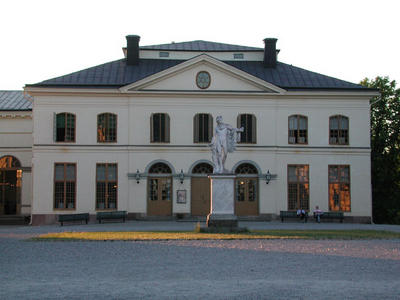Classical Week in Washington (8/21)
Classical Week in Washington is a weekly feature that appears on Sundays. If there are concerts that you would like to see included on our schedule, send your suggestions by e-mail (note the spiffy new address: ionarts at gmail dot com). Plan your concert schedule for the entire month of August with our Classical Month in Washington (August), or your summer opera listening with Opera in the Summer 2005. The selection is meager enough that we gave some thought to not even bothering this week, but here is what we have found.
Monday, August 22, 6 pm
Voest-Alpine Concert Band (from Linz, Austria)
Kennedy Center Millennium Stage
Tuesday, August 23, 12:10 pm
Rachel Barham, soprano, with Andrew Simpson, piano [FREE]
Church of the Epiphany (1317 G Street NW)
Thursday, August 25, 6 pm
City of Belfast Youth Orchestra [FREE]
Kennedy Center Millennium Stage
Friday, August 26, 8 pm
U.S. Army Concert Band concert
U.S. Capitol, west side
Saturday, August 27, 8 pm
AIDS Marathon Opera Gala
Washington, D.C., Scottish Rite Center
See the review by Joe Banno (Washington Post, August 29)
Sunday, August 28, 5 pm
Organ Recital: Gerald Gifford (Thornham, U.K.)
Washington National Cathedral
Sunday, August 28, 6 pm
Ronald Stolk (St. Patrick's in the City, Washington), organ [FREE]
Basilica of the National Shrine of the Immaculate Conception, Great Upper Church
——» Go to last week's schedule, for the week of August 14.





















































